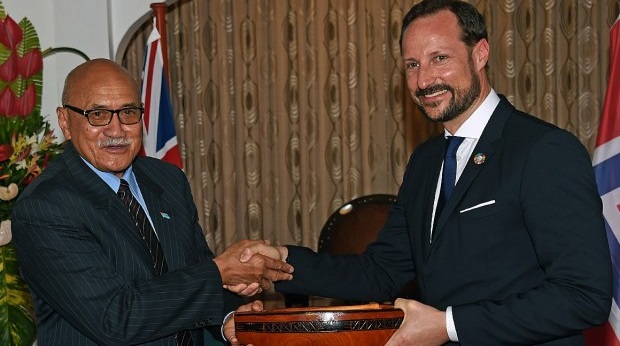OHMYGOSSIP – Everyone wants flawless makeup and perfect skin. While beauty YouTubers and Instagrammers are constantly promoting different products that worked miracles for them, sometimes (actually a lot of the times) you find yourself hating the product and wondering, but why? But how? The math is simple, different skin care products work for different people because everyone has different skin types. You already knew this.
So instead, what you need is to go back to the basics. Here are 12 universal beauty secrets that every girl needs to know. From how to keep and store your makeup and skin care under the best conditions so they last a lifetime to all the things you should do and avoid to achieve beautiful, flawless skin. Here are the secrets revealed.
1. Don’t store your makeup in the bathroom
According to dermatologists, the warm and humid conditions of your bathroom during and after showers or baths can make your makeup expire more quickly. It’s better to store your daily makeup in your bedroom instead.
2. Store your less frequently used creams and serums in the fridge.
It’s best to store any creams, eye creams or serums in the fridge as it will allow for a longer shelf life. It’s also especially good for eye creams as the cooling sensation reduces puffiness under the eyes. But please don’t put oils, pressed powder, lipsticks or eyeliners in the fridge.
3. Always use sunscreen.
Remember when your mom used to slap on the sunscreen to your face and body, well… mother knows best because sunscreen is vital to your skin care. Kim Kardashian’s LA-based dermatologist, Dr. Harold Lancer, recommends that sunscreen of SPF 30+ be worn daily to prevent the skin from UV damage, aging and unwanted dark spots.
4. Don’t wear makeup to the gym. Just don’t.
I know it’s hard to resist putting on a bit of makeup for your cute workout selfie, but you probably already knew this one. Working out in your makeup is truthfully speaking, a crime against your skin… the worst culprit: foundation. Sweat mixed in with makeup creates perfect conditions for acne to appear. So just don’t.
If you absolutely cannot resist, then go for a super light BB Cream or a water-proof, silicone-based mascara at most. Make sure that you cleanse your face thoroughly immediately after if you decide to break a sweat with makeup on your face. Or just use the cute puppy filter.
5. Regularly clean the things that touch your face.
Your phone is probably one of the dirtiest things you own and you definitely carelessly throw it on your bed and slap it against your face all the time. Make sure you regularly cleaning the things that constantly touch your face, like your phone and your pillowcase. Dr. Harold Lancer recommends washing or changing your pillowcase once a week and cleaning your phone with cleansing wipes.
6. Avoid touching your face as much as possible.
Your fingers have been everywhere and you know it. Try to avoid touching your face as much as you can with unwashed hands as you can easily transfer bacteria to the skin and cause breakouts.
7. Never ever sleep in your makeup.
This one is also pretty obvious, but even on the nights when you’re drunk AF and literally can’t, even on the nights when you’re tired AF and literally can’t, even on the nights when you’ve had amazing sex and just want to cuddle bae until you fall asleep… don’t. Make sure you wash your entire face thoroughly before hitting the hay. Sleeping in your makeup will clog your pores and cause breakouts.
If you still literally can’t, keep some makeup wipes by your bed and at least take your foundation off.

Taking salt baths increases blood volume that can significantly alleviate chronic fatigue syndrome. Infections and toxins can cause dehydration of the organism. Sea salt helps the body take in more water and this is beneficial for the lymphatic system, besides it is part of the osmotic processes and efficiently cleans the cells that way.
8. Take regular salt baths
Crystal salt contains nearly a hundred valuable natural minerals that strengthen the organism, it regulates the function of sebaceous glands, boosts circulatory function and has an antibacterial effect.
We suggest:
E&S Lavender + Himalayan Pink Halite Bath Salt
Elisheva & Shoshana handmade Lavender and Himalayan Pink Halite Bath Salt is a natural bathing accessory with a broad spectrum effect, skin-nourishing, calming and comfort-boosting. It contains many antioxidants that give an extra shield for the organism and help attain and maintain healthy body mass.
Eucalyptus + Sea Minerals Bath Salt
Elisheva & Shoshana (E&S) handmade “Eucalyptus and Sea Minerals Bath Salt” has a stimulating, refreshing and concentration enhancing effect. Eucalyptus boosts the respiratory function and helps relax the muscles after training, it alleviates pain and reduces inflammation. Sea minerals include 90 different minerals and microelements that help clean the organism from toxins, regulate the function of sebaceous glands and keep the skin young and fresh.
9. Don’t exfoliate if you have acne.
According to Beverly Hills dermatologist Dr. Christie Kidd, you should never exfoliate your skin if you have active acne. Using face scrubs will only lead to more irritation and worse inflammation. But DO exfoliate regularly if your skin is acne free.
10. Don’t overuse pore strips.
While pore strips are super fun to use because you get to see all the little white heads stick to the strips, using them too much can actually result in enlarged pores. Instead, it’s better to lightly steam your face in the shower, sauna, or over a facial steamer to naturally open up the pores, use a cleanser to clear out the pores, and then apply a cooling toner to close them up.
11. Good makeup means nothing without good skin.
We’re obsessed with high coverage foundations and concealers that will give the best, flawless finish, but really the most important thing is finding a skincare routine that works for you and also allowing your skin to breathe once in a while. Try skipping foundation and just using concealer some days, or using a tinted moisturizer instead. At the end of the day, the better your skin looks, the better your makeup will look.
12. Use Magnesium products
Magnesium chloride (MgCl2) can help alleviate the following complaints: depression, anxiety, fatigue, headache, asthma, muscular tensions, painful joints, sleeping problems, spasms, intestinal complaints, accumulation of toxins (detox effect), excess weight, magnesium deficit. Magnesium chloride is an important factor in the elimination of toxic elements and heavy metals and helps recover the minerals balance in the organism, it regulates the cholesterol level and normalizes the values of blood pressure. We suggest to use E&S products. The product Elisheva & Shoshana “Magnesium Chloride Bath Flakes Natural STRONG 47%” is a natural bathing supplement with a broad spectrum of muscle relaxation, spasm alleviating and nervous system calming effect. E&S magnesium chloride flakes are dermally promptly absorbed, it takes 5-15 seconds to enter the cells. About 95% of the applied magnesium enters the cells, the absorption through the skin is therefore preferred to oral intake in the form of capsules, powder or pill, also transdermal application of magnesium entails no gastric or intestinal burden.
Featured image: Beauty influencer and Scandinavian violinist Estella Elisheva (Foto by: O.E.Luggenberg)
Source: Ohmygossip.com




